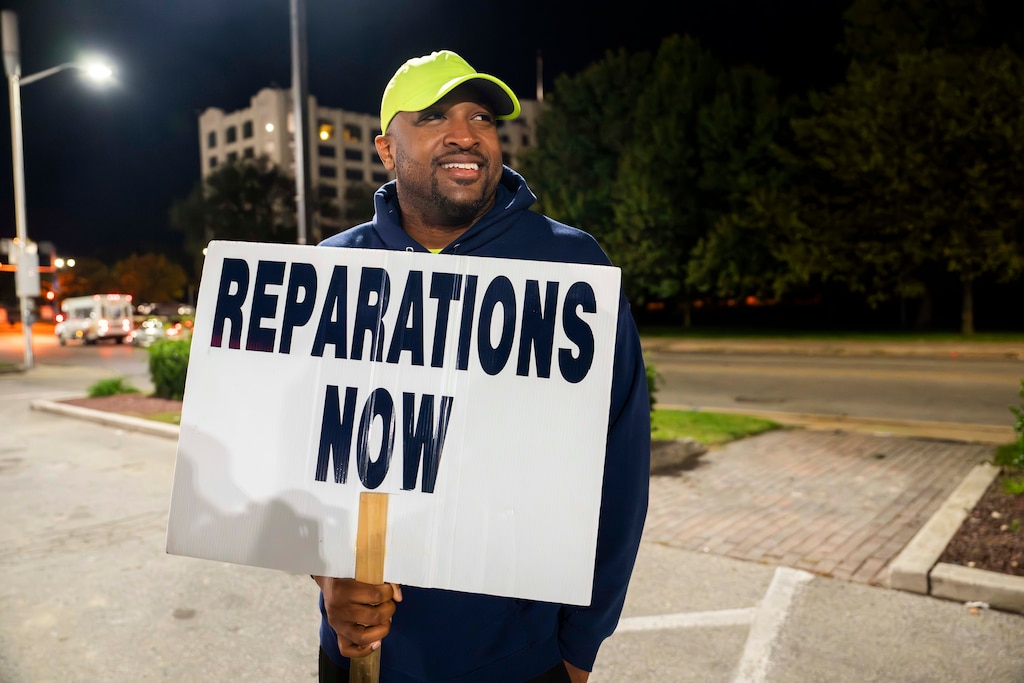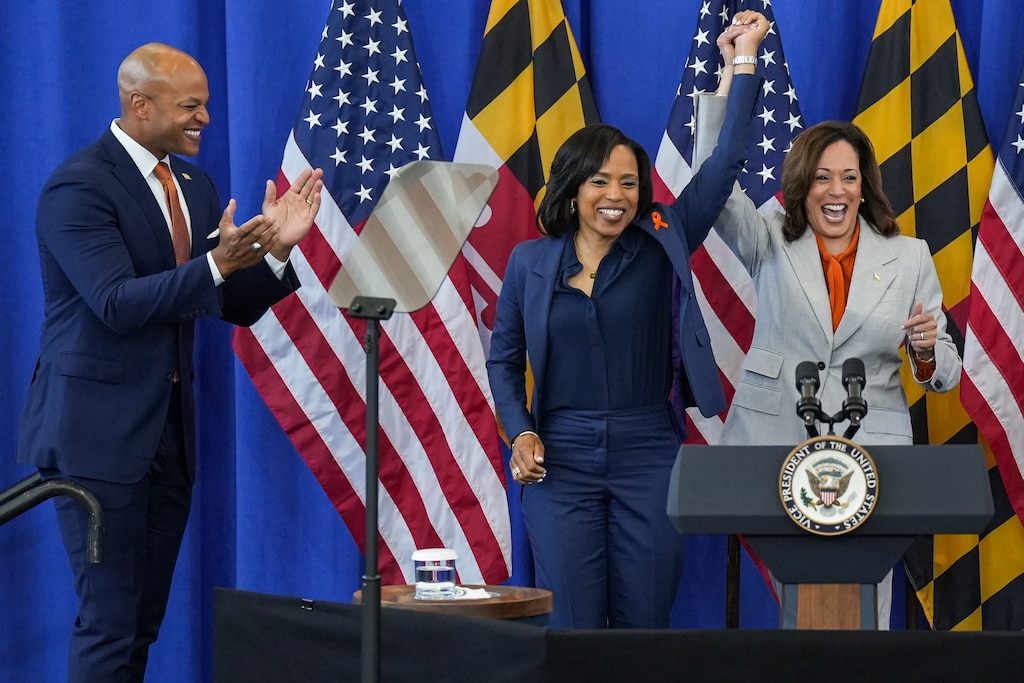California Gov. Gavin Newsom’s apology last week for the state’s part in condoning slavery has reinvigorated conversations in Maryland about what can be done to atone for its role in enslavement and the subsequent discriminatory practices levied against Black Americans.
The formal apology by Newsom was among several bills the governor signed as a way to atone for injustices against Black Americans in the state, including several dealing with reparations.
“The State of California accepts responsibility for the role we played in promoting, facilitating, and permitting the institution of slavery, as well as its enduring legacy of persistent racial disparities. Building on decades of work, California is now taking another important step forward in recognizing the grave injustices of the past — and making amends for the harms caused,” he said in a statement.
His stance caught the attention of Marylanders who have been pushing for some kind of redress. The state apologized formally in 2007, but many groups are fighting for further reparations.
Some people, like Carl Snowden, believe reparations in Maryland could occur locally over the next few years.
“I believe much of this will be determined by what happens in the House of Representatives. Assuming Republicans keep control of the lower chamber, I believe we will see more local governments respond with a variety of proposals to address the issue,” said Snowden, an Annapolis civil rights activist who leads the Caucus of African American Leaders (CAAL), and also a former Annapolis City Council member.
But reparations have proven not to come easily.
Some criticized Newsom for not going far enough, in part because he vetoed a bill that would have helped Black families reclaim or be compensated for property that was unjustly taken by the government.
Newsome said that the proposal by itself would not have been able to take full effect because lawmakers blocked another bill to create a reparations agency to review claims, according to the Associated Press. The bill would have created a process for families to file a claim with the state if they believe the government seized their property through eminent domain due to discriminatory motives and without providing fair compensation.
“I thank the author for his commitment to redressing past racial injustices,” Newsom said in a statement. “However, this bill tasks a nonexistent state agency to carry out its various provisions and requirements, making it impossible to implement.”

Newsome’s veto was “not based on merits nor morality of whether the Black families were harmed and deserving of repair. Instead, his decision was based on his minimalist view that the government could not get it done,” said the Rev. Robert Turner, the pastor of Empowerment Temple in Baltimore.
Turner is a leading voice in the national push for reparations, which can come in the form of financial compensation, educational investments, health care access, housing programs, economic development investments, land and property ownership, and criminal justice reforms such as record expungement.
“It shows once more that whether something is right and just matters little in America as it relates to Blacks. Only if it is expedient,” he added.
Reparations remain a polarizing issue.
A 2022 Pew Research Center survey found that 77% of Black adults say the descendants of people enslaved in the United States should be repaid in some way, while 18% of white Americans say the same.
Critics question why white people with no direct link to slavery should have to pay the cost of reparations for past wrongs. Supporters say that the harm Black people have experienced extended well beyond slavery. Not being free and decades of discriminatory practices entitle Black people to some form of compensation, they contend.
Presidential candidate Kamala Harris called for “some form of reparations” for Black Americans during her first presidential campaign in 2019. She also supported legislation to study the issue of repayment for historic wrongs. President Joe Biden also spoke in favor of a federal reparations study when he was running for president in 2020, but his administration has not pushed strongly for it, The New York Times reported.
In Maryland, a state that many think has provided a national blueprint for electing Black politicians, the push for reparations is building.
In a March interview with the Associated Press, Maryland Gov. Moore said he understands why people continue to debate the issue, “because the consequences that we saw from the transatlantic slave trade still continue to be real in people’s lives now.”
“I also know that we have to move now to be able to address the issues of housing insecurity and food insecurity, the racial wealth gap, the educational disparities — the things that we know right now we can get done,” Moore said. “We have an obligation to move with a sense of urgency, so we don’t continue watching how families who have oftentimes historically have been disadvantaged continue to be disadvantaged by policies that we still continue to put in place.”

A spokesman for Moore, the state’s first Black governor, in November acknowledged the historic obstacles that Black Americans have faced.
“It’s laudable the legislature wants to study the impacts of the transatlantic slave trade that continue to affect people’s lives today,” said Carter Elliott, a spokesman for the governor. “It’s why the Governor focused on issues like housing insecurity and food insecurity, the racial wealth gap, and educational disparities in his first legislative session, and why they will continue to be a major focus for the administration moving forward.”
Elliott declined to say whether the Moore administration would back some kind of reparations measure.
When reached for comment Friday, Elliott said the administration was not “going to say anything different than what we’ve previously said.”

The Maryland Legislative Black Caucus has put together a work group that is looking at this issue for the 2025 Session, said Del. Joseline Peña-Melnyk.
“My understanding is there’s no bill drafted yet, but discussions are taking place,” she added.
Prince George’s County County Executive Angela Alsobrooks, who is running to be the first Black woman U.S. Senator in the state’s history, supports Sen. Cory Booker’s bill — the Commission to Study and Develop Reparation Proposals for African Americans Act, according to her campaign.
Turner is hopeful that Maryland will achieve reparations of some kind with Moore, Harris and Alsobrooks in power. But said they must make it a top priority.
“I am hopeful that Maryland can show other states how to get reparations passed and done,” Turner said.


